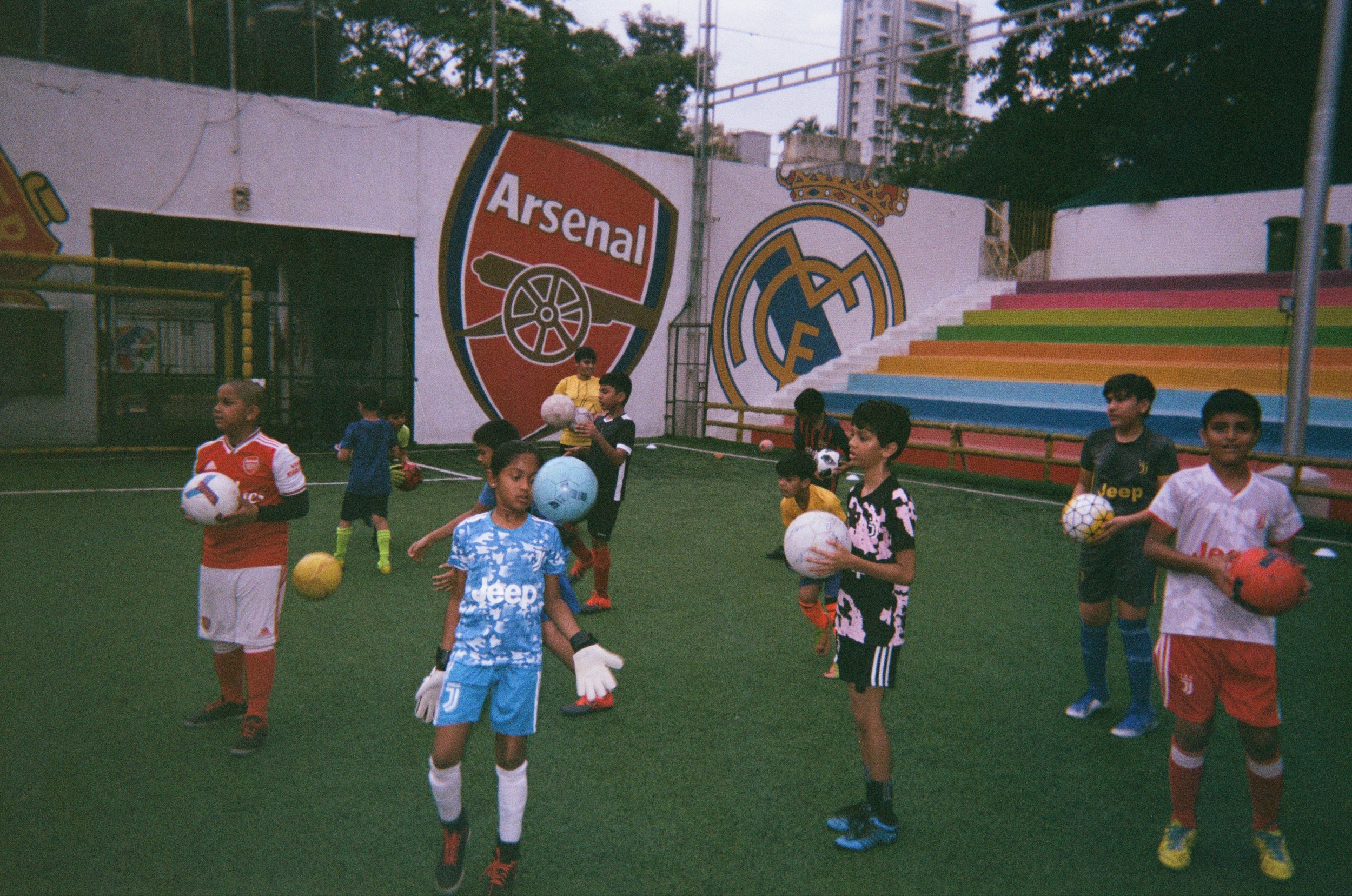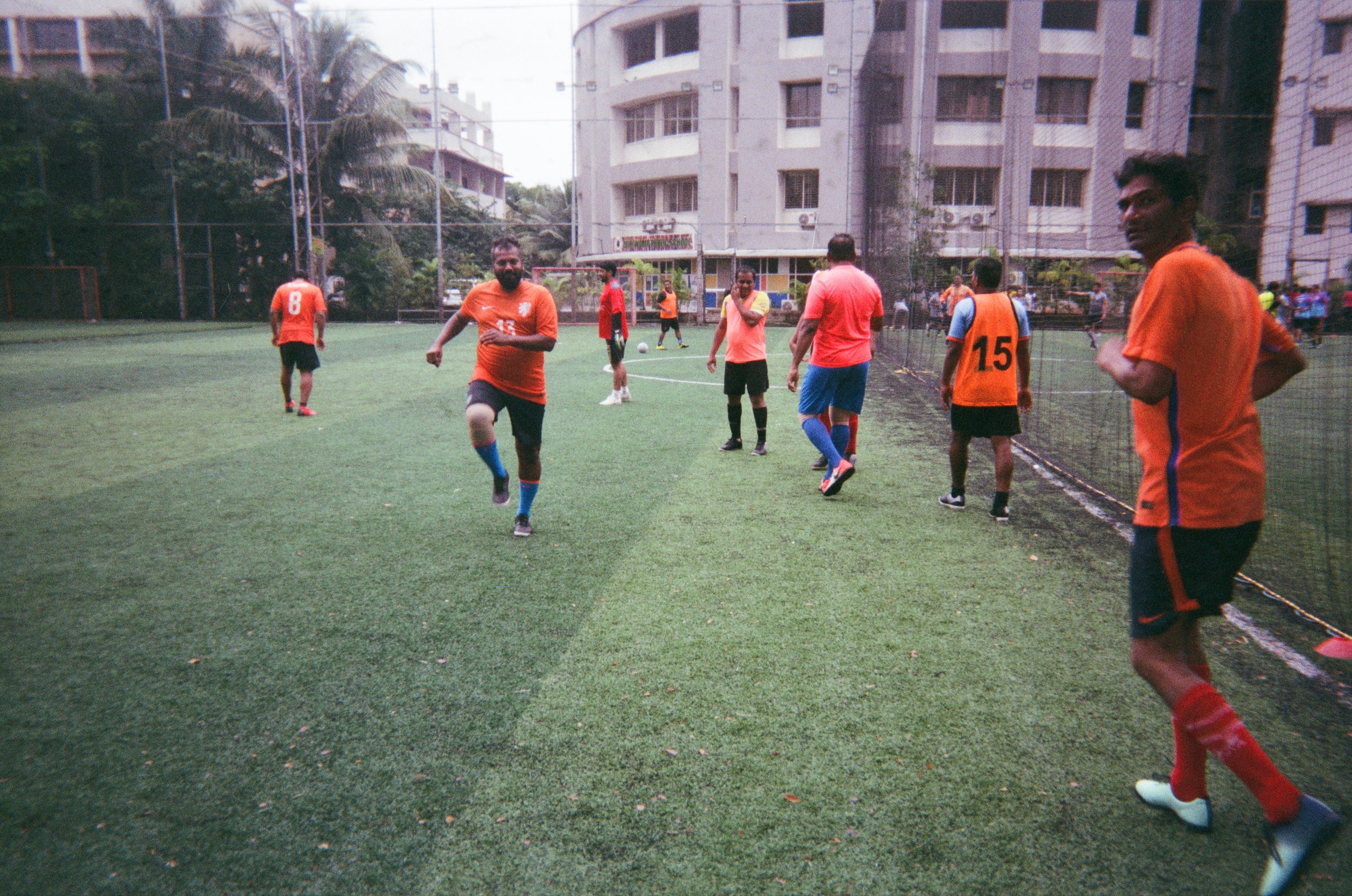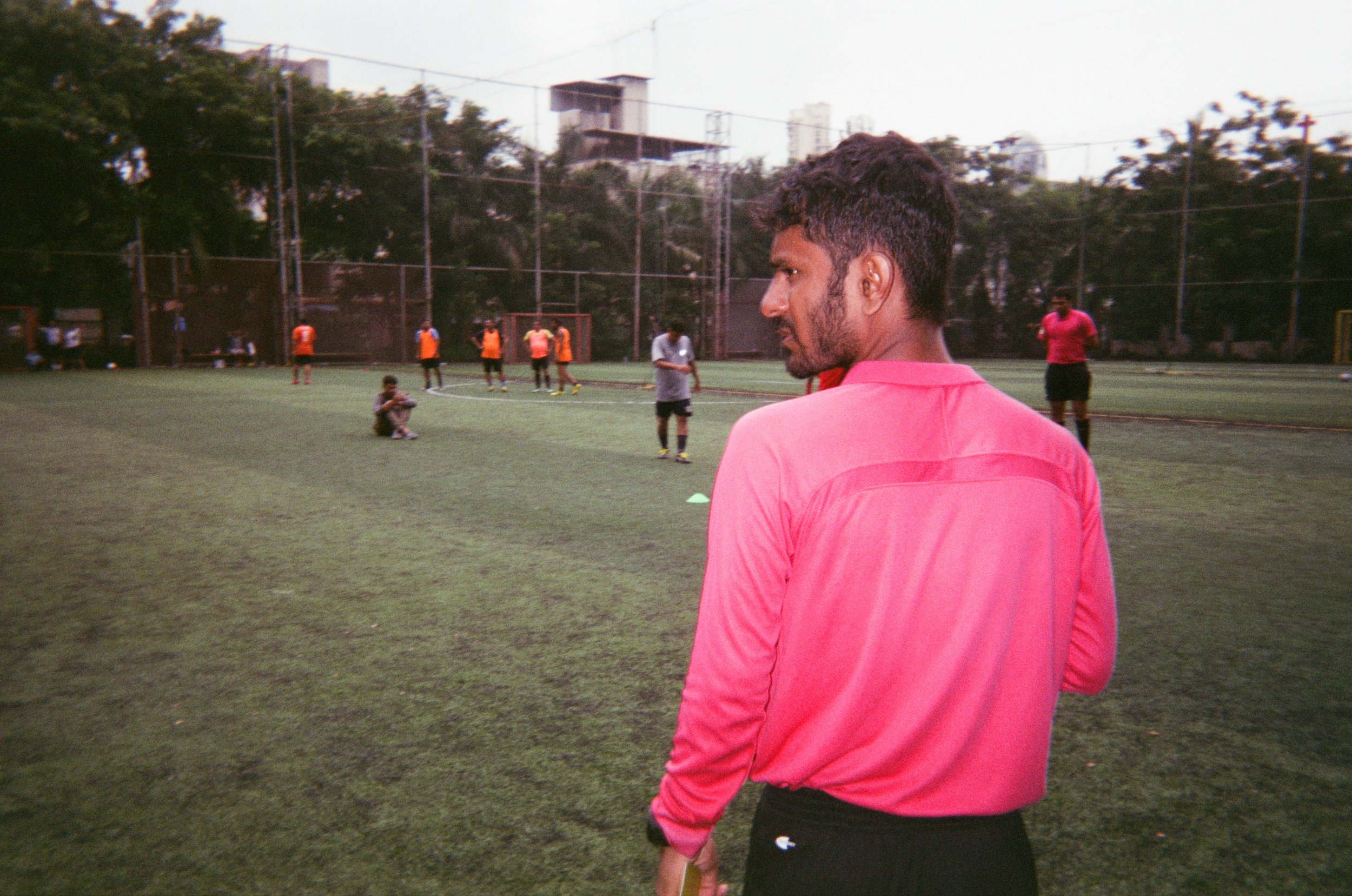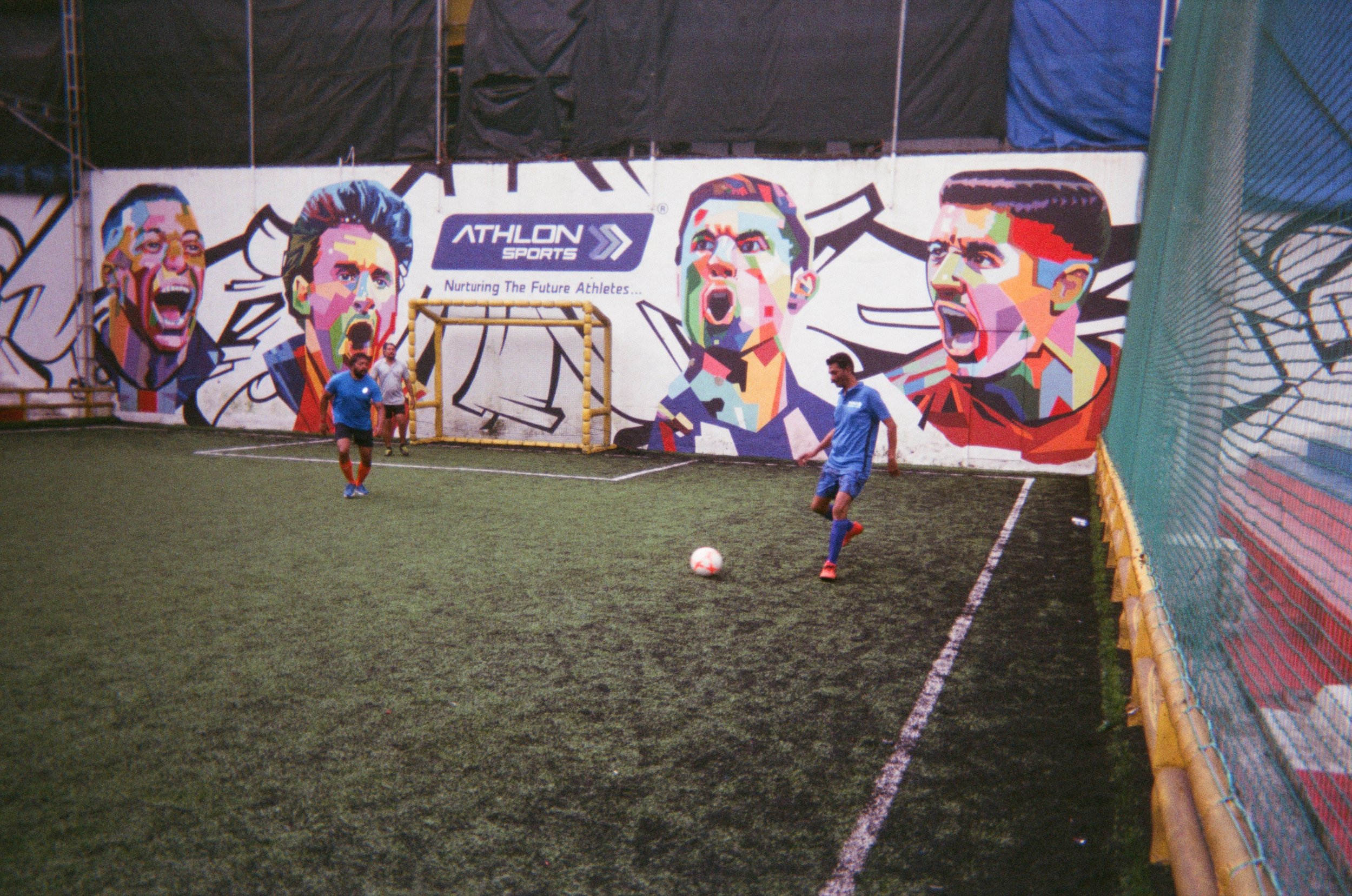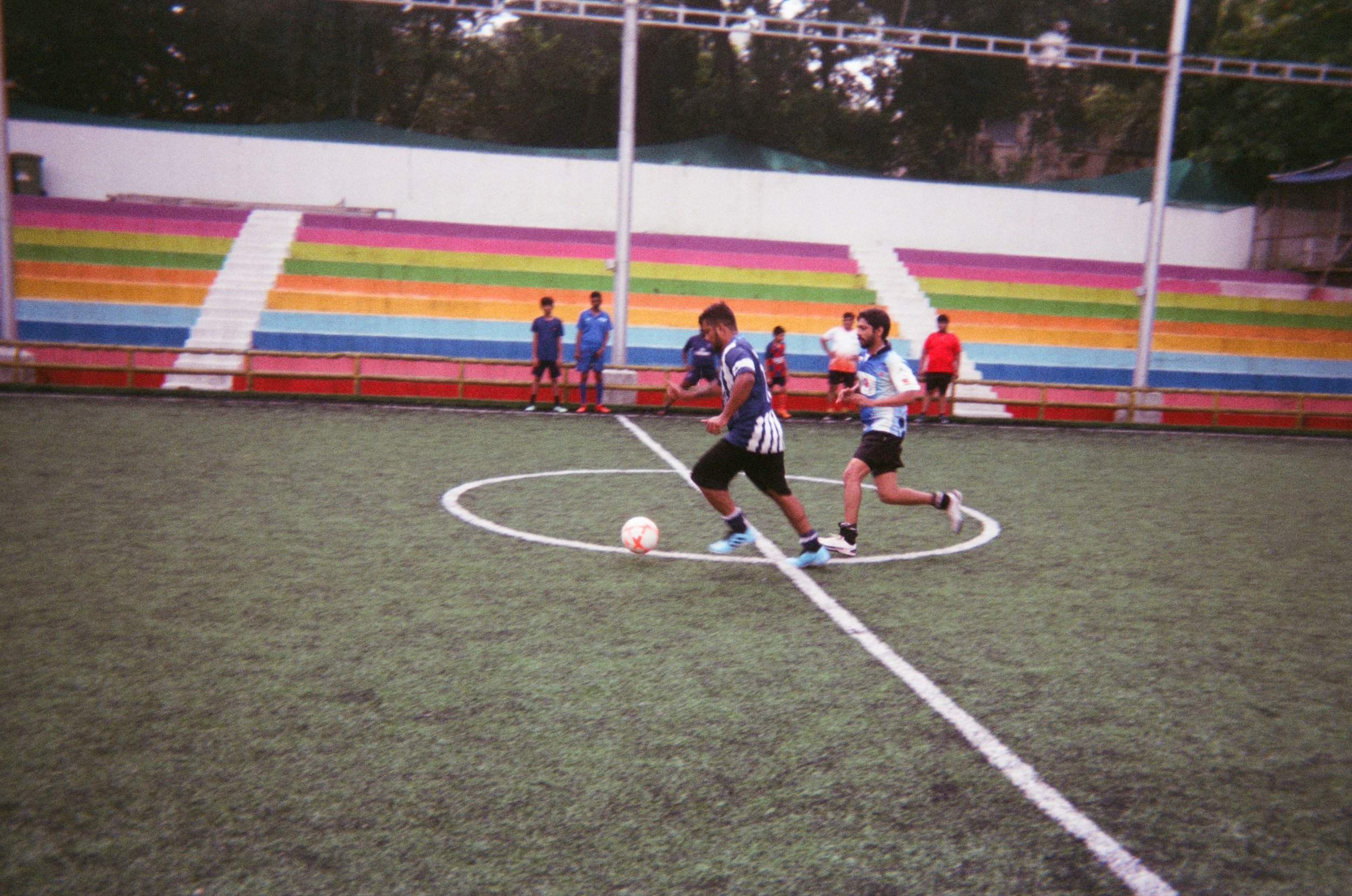The Freedom To Play
Ajay Shetty, India
Goal Click and the Royal Dutch Football Association (KNVB) teamed up to tell the inside story of KNVB WorldCoaches programme in India, through the eyes of local WorldCoach Ajay Shetty in Mumbai.
KNVB WorldCoaches is based on the Dutch football philosophy that children learn to play while having fun. WorldCoaches are local community coaches educated to organise football activities in a way that contributes to fostering personal development, health and social cohesion for children and youths from disadvantaged backgrounds. KNVB has educated more than 15,000 WorldCoaches worldwide, of which a quarter are women.
KNVB WorldCoaches has been active in India since 2006, when Indian NGO Magic Bus requested the KNVB educate their coaches to enhance their impact on youth participants. More than 250 local coaches were educated by the KNVB in the “Coach-the-Coach approach” (the original name of the WorldCoaches program until 2009). In 2018 an agreement was signed with the All India Football Federation (AIFF) for further cooperation in the field of coach education.
Can you introduce yourself and tell us about your current football life?
My name is Ajay Raju Shetty. I was born and brought up in Vikhroli, Mumbai, India. When I was in Grade 5 (aged 10), I was introduced to football, and I have been playing ever since. It was a life changing experience for me.
Currently I play for Iron Age, a veterans’ club for players aged 40 and above. The players of the team are from in and around Vikhroli, Mumbai. We practice together two or three times every week depending upon availability, and we participate in a lot of veterans’ tournaments held in Mumbai.
Separately, I coach for private institutions and hold a position as a football coach for the renowned educational institution Aditya Birla World Academy. I also do sports consultancy for different sports development organisations to educate coaches and children on how to deliver life skills messages and work through challenges they face through the medium of football.
What has been your football journey up until now?
My journey as a football coach started in 1993 when I was 20 years old. I coached children from St. Joseph High School in Vikhroli, Mumbai, the same school I had graduated from. I was not a qualified coach at that time, but with time I gained my coaching licence to improve my skills and make it my career. I trained with the KNVB WorldCoaches program and was the first coach to be selected from India for the International Coaching Course organised by Royal Netherlands Football Association (KNVB) in Zeist, in the Netherlands.
I have had the opportunity to learn from different coaches to gain an understanding of different projects around the globe. I was also a coach for the Indian Senior National Women’s Team and Indian Under-19 Women’s team.
What did you try to show with the photos? Was there any wider meaning with the photos?
I took photos of children from the Athlons academy under-12 team during a practice session at Kalidas. Others were taken in Chembur, Tilak Nagar, during a girls’ football tournament at Jupiter Sports Club Chembur.
Jaithra Anand, the little boy in yellow, is 10 and has been developing better football skills recently. His focus on playing football was very low, but gradually he has developed an interest in playing. Now he plays with under-12 and under-14 children, is very focused, and tries to listen to the instructions given by the coaches and follow them. He is fearless in his approach while playing.
I wanted to show the football training we deliver to children. Those with good skills are encouraged to get even better, whilst the children still developing are encouraged to work on their skills.
You can see a coach trying to motivate the children to give their best. We believe that our training sessions should always be based on four pillars: 1. Total enjoyment, 2. Participation, 3. Safety, 4. Experiential Learning. At the centre of the pillars is the one who delivers the sessions – the coach, the mentor.
Some veterans can also be seen playing. They all played football during their youth. Some of them are coaches now, some have their own businesses. What is common amongst them all is their love for football. They also financially support younger children from poorer backgrounds to learn the sport and important life skills.
What role does football play in Indian society?
Football brings all people from different caste, religion, and creed together. One can also identify the gaps within communities and try to address them using football as a tool. A ball can bring people together.
Many of the challenges people face in their day-to-day lives come out when they attend football training, where the coaches speak to them about problems in their communities - water, education, jobs, health. Through football, we try to resolve some of these issues by creating awareness about the various support systems in the city that they can approach.
Besides the usual benefits such as health, fitness, and discipline that sport provides, what makes football particularly great for kids in India is that it focuses on fair play, inclusion, and empathy.
Football in India has historically been among the top three most popular sports in terms of player participation and TV viewership. We love it because it has the power to bring communities together. Everyone can participate in a football match, there is no discrimination between rich and poor.
The 2017 FIFA U-17 World Cup was hosted by India, which was the first time the country hosted a FIFA event. The tournament was touted as the most successful FIFA U-17 World Cup ever, breaking the overall fan attendance record across all matches. India is also hosting the 2022 FIFA U-17 Women's World Cup.
Events like these give opportunities to our teams to meet other teams from different countries and regions, helping them understand their game strategy, learn how the game is played and organised, and see how players are developed from smaller countries compared to India.
What does football mean to you? What ambitions do you have for the future?
For me football is a way of life. It teaches different values – the value of time, how to work as a team, identifying one’s own weaknesses and strengths, and instils a never-give-up spirit. Most of all, it is a kind of stress reliever for me. When I play football, it is just football and nothing else is on my mind.
I have been working for the last two decades to empower girls in football and have set up a sports organisation called Bodyline Sports Club. We realised that more focus and attention was given to boys in football. Bodyline Sports Club is specifically for girls to join at an early age so that they can sharpen their skills in football, represent the district and state level, and take football up as a profession. Some of our senior girls have even been selected for the India women’s national team.
A proper structure is created where the girls play in different age groups and then are streamlined into the Bodyline team. We have children from all parts of society. They get to learn about each other’s communities, their ways of living, and their challenges.
As a football coach, I would like to reach out to more and more underprivileged children from different communities, focusing on girls. My ambition is to guide these children so that they have a clear goal, so that they can move forward and create a better future for themselves and their communities.
What are the opportunities for women and girls to play football in India?
The women's game is growing, with the number of clubs just in Mumbai increasing a lot. Before, no proper women’s tournaments were being organised, but it is entirely different now. The number of tournaments for women have increased, the number of teams are increasing, whilst recognition for women’s football teams is also increasing and given importance. Six years ago, the All India Football Federation started the Women’s I-league. Our club, Bodyline Sports Club, was the first club to qualify from Mumbai for the first I-league held in 2016.
In some of the areas I have worked, it is clear that girls are meant to stay indoors and do household chores and sports is a luxury for them. Girls are not given enough chances to play, so getting girls to the ground is a big challenge. Boys often feel they are superior to girls, and to break this myth, we encourage them to make girls the captains in their teams during matches. We also invite girls to talk about their experiences and challenges.
What impact has the KNVB WorldCoaches programme had on you?
I attended the first KNVB WorldCoaches programme in Mumbai, India in 2006. The program taught us how to deliver a football training session and to link it to a life skill message. The program was not only about developing your coaching skills but also how to address vital community issues through the sessions. What I personally learnt was, coaching + __________ = development.
Normal coaching is just upgrading football skills in a player. But when you talk about overall development, it means coaching the person on football skills and also life skills. If you train one thousand children, in a huge country like India you would expect only 5 or 10 to make it to the next level at the state or national level. But if you train them in life skills, then all one thousand children can become better citizens and do well in their lives in the future.
When I say coaching +, it means including the behaviour and understanding of the coach. The most important thing is the person delivering the program, whether you call them a coach or a mentor. How they deal with the children, how they represent the community, the trust and rapport they build with the children, all of this makes a difference.
How do the children that you train benefit from playing football?
The children have developed qualities like punctuality, working as a team, discipline, and how to set long and short-term goals for themselves. Through these qualities, they have excelled in their education too. Making good friends, accepting people the way they are, managing your emotions; these are all skills that they learn from playing football. It keeps you both physically and mentally fit.
Two examples of the benefits of football training stand out from my career. A team that I was training in 2003, while I was working for a sports development organisation, had 16 children participating. Of these, currently one is a lawyer, one is working abroad (Australia), two have started their own sports for development organisations within their community, and around ten are working as coaches, a few of whom have started their own academy.
The second example is from St. Anne’s girls’ team in Colaba. The girls would practice daily, topping their league and some girls played at a district level. Eight of these girls were in grade 10, and one of the girls from the class scored the highest marks in exams for her year group, whilst the rest of the team all scored above 90% in their exams. Sports can relieve the stress of exams and help players in their exams.
What do you think the future looks like for football in India? What do you want to change?
The structure of Indian football now means that there is a pathway for Indian football coaches and players to achieve success. There are ample opportunities for children from a very young age to participate and show their skills in football. Football clubs are also scouting for young football players at different levels who are then selected to play for the academy where proper training guidance is provided through trained, experienced coaches.
Football also provides job opportunities, hence more and more are opting for a better career and future by getting into the game. But there are still issues with the gap in funding between the professional leagues and those playing at grassroots level, and players still miss out on opportunities to progress.

